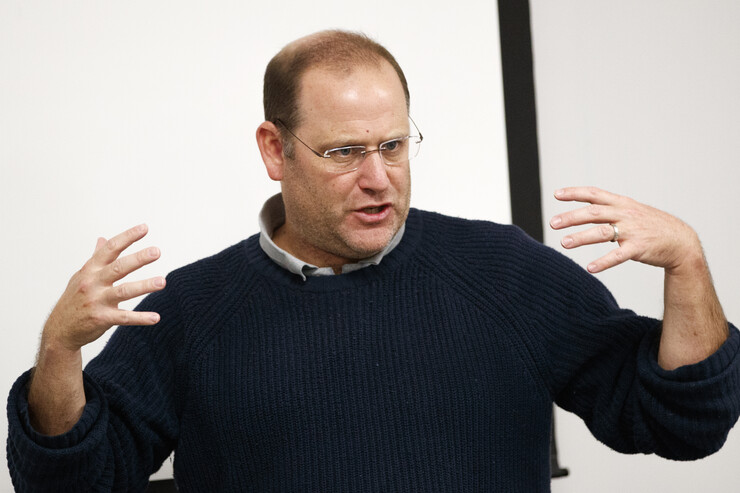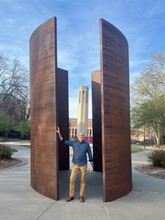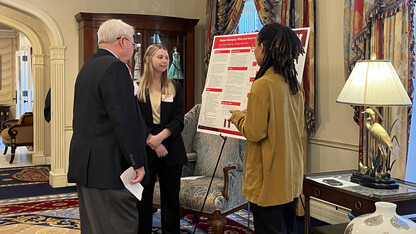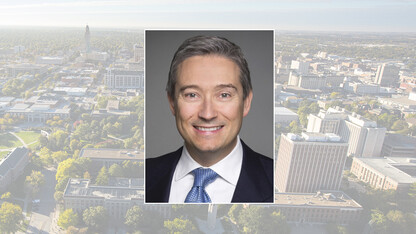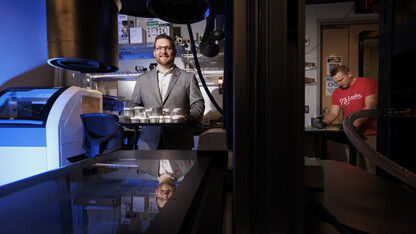· 4 min read
Lippman shares passion for classics with students
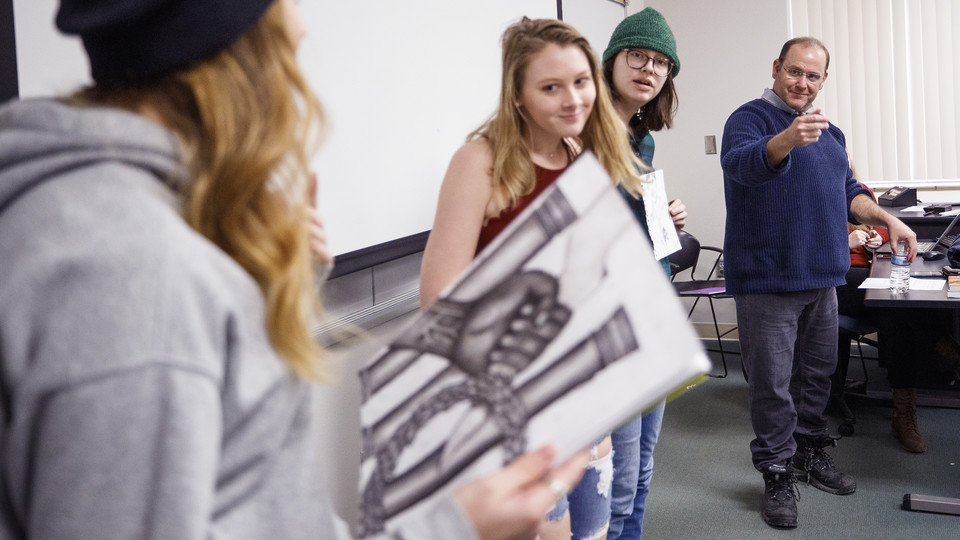
Mike Lippman’s face animates and his voice booms when he talks about Greek classics like Homer and Aristophanes, or why the ancient languages of Greek and Latin are still relevant today.
“I think if you want to be a successful entrepreneur, you should take Greek,” Lippman, associate professor of practice in classics and religious studies, said. “It’s a more practical major.
“(The rigor of it) is teaching you responsibility, discipline and how to really think about what you say, your word choices and how to be a stronger writer.”
Classical literature and languages are Lippman’s passion – one he discovered accidentally, after having a very lucky streak at a craps table during his senior year at Emory University.
“I was going to be a lawyer, and I was determined to go to law school,” he said. “(But) I took that money and went backpacking through Europe, where I discovered Greece and realized I liked this a lot better.”
As a professor, he’s transferred that enthusiasm to students – more than doubling the number of students majoring in classics and classical languages – and earned the Excellence in Teaching award from the Society for Classical Studies.
“I have witnessed firsthand the explosion of interest in classics that Mike has fostered, much of which I attribute to Mike’s full-throated commitment to teaching and student development not just inside the classroom, but also out of it,” wrote Matthew Loar, assistant professor of classics, in his nomination letter. “Mike is the most dynamic and generous teacher I have ever met.”
Lippman draws the interest of students by structuring his classes like games and incorporating student feedback. His Sparta class, for example, divides students into groups that receive rewards and punishments based on the behavior of individuals.
“Sparta is like a reality-TV show,” Lippman said. “Spartans had a system that was very Big Brother. As the semester goes on, we start showing the danger of how this can become very dystopian. It gets very tense, but students respond very well. The students study, are prepared, and it’s positive peer pressure.”
Along with teaching history and language, the classes also encourage real-world critical thinking.
“This class put me in a position of leadership among my peers, forced me to make hard choices, and caused me to think and exist outside of my comfort zone,” Dakota Boellstorff, a 2016 graduate, said.
In Lippman’s Greek athletics class, students compete with one another – and to the victor go the spoils.
“This brings up a range of discussions,” Lippman said. “Is it really good for societies to hold champions to a higher standard? Should they receive special treatment?”
Lippman’s work with students extends far beyond the classroom, too. He began and continues to advise an active Classics Club and has helped UCARE students introduce events, including the 24-hour Homerathon, that encourage the entire campus community to learn about classical Greek literature.
While Lippman has been instrumental in organizing these activities, he makes sure his students take the lead.
“They’re organizing these large events because I think it’s important for the students to learn and use those skills,” he said. “They are practical for a number of careers. I want them to do it and get credit for doing it.”
